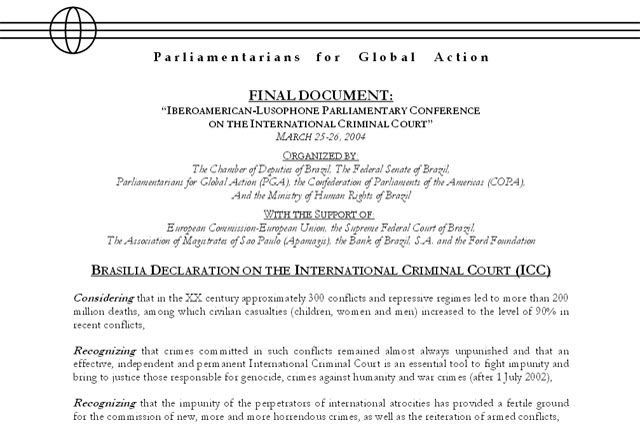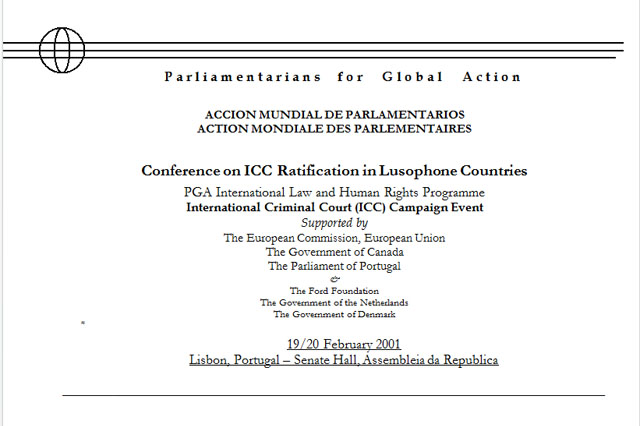Rome Statute Ratification Status
Angola signed the Rome Statute on 7 September 1998. Angola has not yet ratified the Rome Statute, even Parliament adopted with overwhelming support an ICC Ratification Bill on 1 August 2000, which was not signed into law by the President of the Republic.
Signature and ratification status of the Agreement on Privileges and Immunities (APIC)
Angola did not sign and has yet to ratify the APIC.
Relation to the ICC
Angola attended and participated actively in the 1998 Rome Conference. As a member of the African, Caribbean and Pacific community (ACP), and as signatory of the revised Cotonou Agreement with of the ACP and European Union, Angola has recognized the importance of the ICC as a mechanism for peace and international justice, and has committed to promote the ratification and implementation of the Rome Statute, to seek to take steps towards the ratification and the implementation of the Rome Some Statute, and to fight against international crime giving due regard to the Rome Statute. For more information on the work of PGA within the ACP-EU mechanism see, click here.
Human Rights Council Universal Periodic Review
Angola will be reviewed during the 20th session of the UPR in 2014. During UPR's first cycle in 2010, Angola accepted the recommendation of Brazil to ratify the Rome Statute.
Progress and PGA Action
Angolan parliamentarians have participated in several sessions of PGA's Consultative Assembly of Parliamentarians for the ICC and the Rule of Law: II session in New York (2003), III session in Wellington (2004), V session in Santo Domingo (2008) and VI session in Kampala (2010)
Angolan MP's, led by the Minister of Justice and the former Prime Minister, actively participated in the PGA Conference on ICC Ratification in Lusophone Countries held in Lisbon, in the Assembleia da Republica, in February 2001, announcing that their Parliament had adopted the Rome Statute in August 2000.







